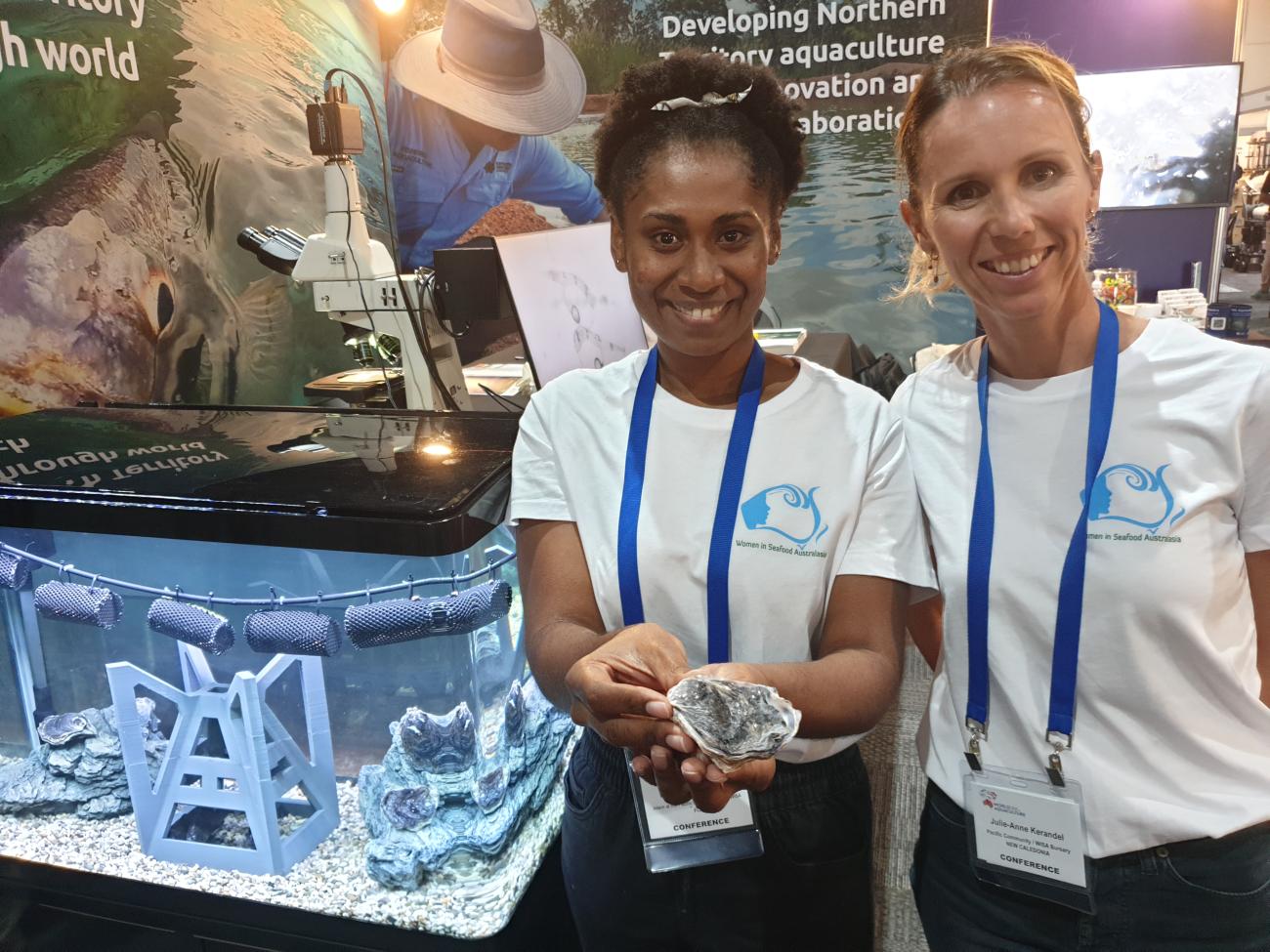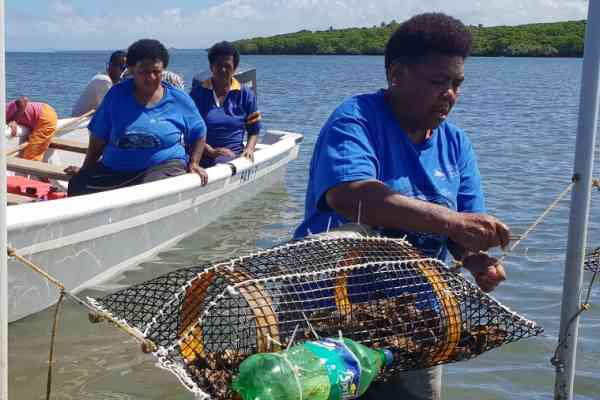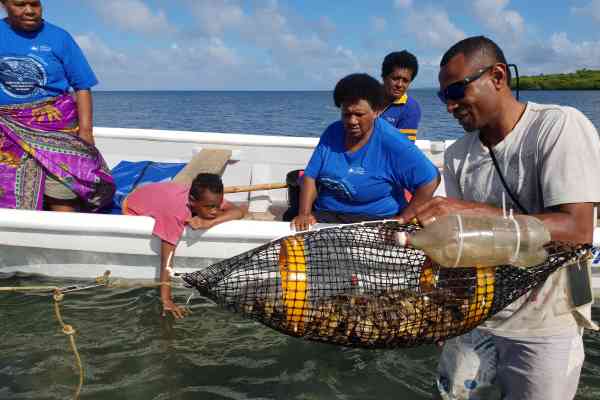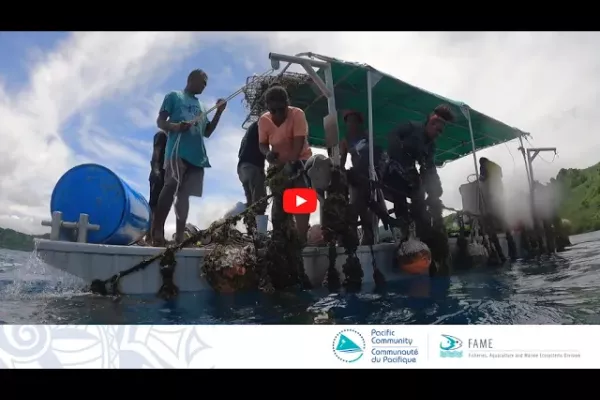(Contenu disponible en anglais uniquement)
By Toky Rasoloarimanana
The International Tropical Rock Oyster Workshop took centre stage in Darwin, Australia last week. Hosted by Northern Territory Fisheries and The Pacific Community (SPC) Fisheries Aquaculture and Marine Ecosystems FAME Division, the event is a melting pot for oyster farming enthusiasts. It was an opportunity to exchange cutting-edge knowledge and insights on tropical oyster aquaculture research and development.
Mangrove oysters has captured the hearts of Pacific islanders, stirring excitement among coastal communities not only for their delectable taste but also for their remarkable ability to act as nature's own water purifiers. Also, with their blend of simplicity, value, and nutritional richness, this emerging aquaculture venture has garnered attention from Asia to northern Australia. However, challenges loom, from reliable hatchery production to maintaining oyster health and ensuring food safety and quality. Thankfully, the workshop birthed a global alliance committed to addressing these bottlenecks and sharing invaluable expertise.
Among the participants hailing from Fiji, Papua New Guinea, French Polynesia, Vanuatu, and New Caledonia were two remarkable researchers, Julie-Anne Kerandel and Melody Vanukon. Their journey to the oyster workshop was made possible through the support of Women in Seafood Australia (WISA), a beacon for women in the seafood industry.
“Coming to this oyster workshop is a great opportunity for me to connect with people from the aquaculture sector in the region and to learn from their experience.», said Julie-Anne, SPC Fisheries Economic Specialist. It has given me a better understanding of the current challenges and problems faced by the different professionals and communities, and of the improvements, successes and innovations in the sector. This has strengthened my ability to adapt my work in oyster farming to the current needs and perspectives,» she said.
For Melody, a Ni-Vanuatu aquaculture intern at SPC, the workshop opened a gateway to connect with regional aquaculture experts. Fresh from completing her Master's degree in mangrove oyster farming at the University of the South Pacific, Melody said, “Attending the conference allowed me to expand my knowledge in aquaculture and seafood safety. This is a fantastic opportunity to learn about what others are working on, and to stay informed about opportunities in this emerging industry”.
Women in Seafood Australia (WISA), a national organisation, play a pivotal role in supporting the women of the seafood industry. WISA provides a unique network of members and women who work in seafood across the Australasian Seafood Industry.
With the backing of the Australian Centre for International Agricultural Research (ACIAR), WISA provided bursaries to facilitate the participation of women in aquaculture at both the Oyster Workshop and the back-to-back World Aquaculture Society Conference 2023 in Darwin. This extraordinary opportunity enabled bursary holders, WISA members, and industry professionals to forge bonds and strengthen their network.
As the echoes of the workshop continue to resonate, the Pacific islands region embarks on an exciting journey in mangrove oyster aquaculture. With networks made, minds united, and knowledge shared, the path to sustainable and thriving oyster farming looks brighter than ever before.



